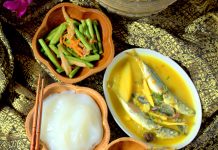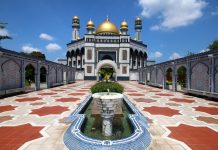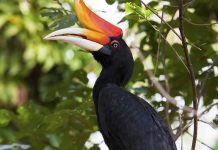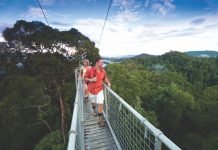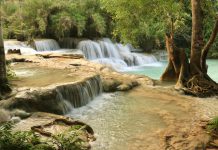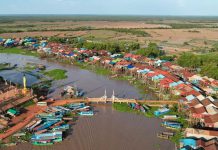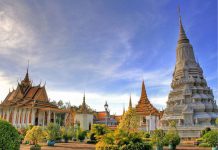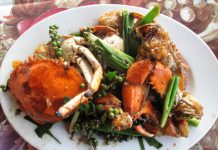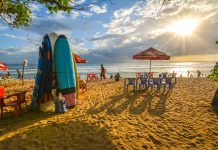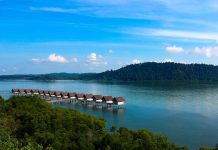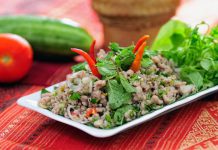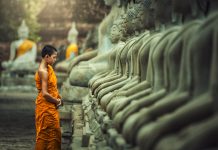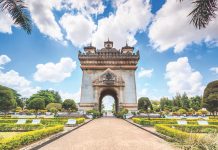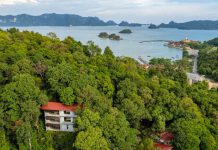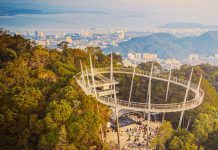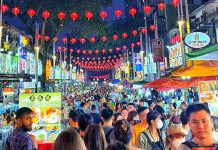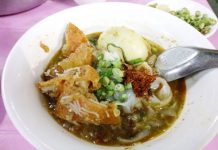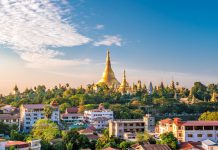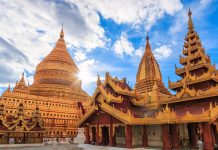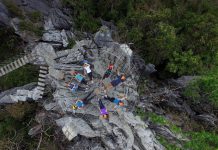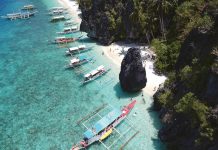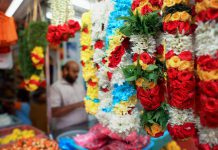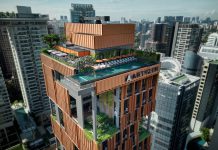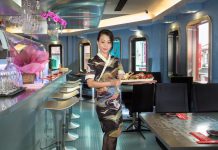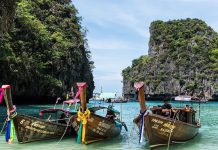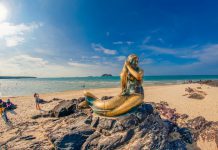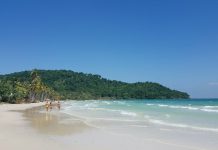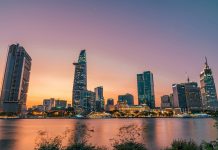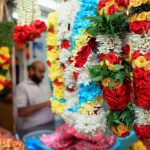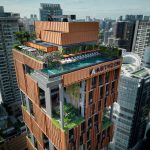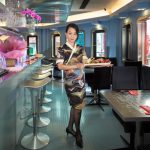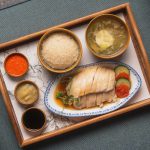Sandwiched between the Rajang River, the longest river in Malaysia, and the Igan River, Sibu has long been known to be the window to Central Sarawak. Its strategic location has made it an important trading centre and transportation hub for timber, rubber and paper.
The third largest town in East Malaysia after Kuching and Miri, Sibu has a laid-back and down-to-earth vibe, a result of being off the tourist trail. But that is set to change as direct flights are now available between Sibu and Singapore, as well as other Malaysian cities.
So plan a weekend getaway to check out Sibu’s rich historical and cultural heritage, natural attractions and vibrant food scene before tourism changes the city. You’ll be pleased to know that most of Sibu’s attractions are scattered around the city centre and are easily accessible on foot.
We present you with a list of 11 awesome things to do in Sibu.
1. Eat & shop at Sibu Central Market
The fastest way to see how the locals live would be to make a trip to their market, and in Sibu, that market would be Pasar Sentral Sibu (Sibu Central Market). The wet and dry market, built in 1996, is one of the largest in Malaysia. There are over 1,000 stalls housed within the two-storey building, and a food court on the upper level.
The market is centrally located in the city centre, opposite the busy Express Boat Passenger Terminal. At the market, you’ll find a wide range of cooking ingredients to make authentic local delicacies, as well as livestock, fresh goods and farm produce.
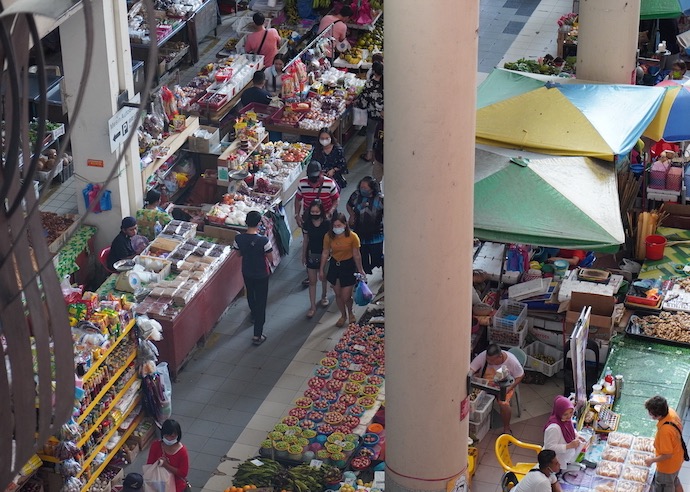
Photo: Sarawak Trade and Tourism Office Singapore
Look out also for exotic tropical fruits – like terung asam (Iban eggplants), a type of orange-coloured eggplant shaped deceptively like tomatoes – that you wouldn’t be able to find elsewhere in Malaysia. There are also live chickens and ducks neatly wrapped in newspapers, and gorgeous handicraft made by locals.
Be prepared for some walking as the market is massive. The freshest goods usually sell out in the afternoon, so go as early as you can. More stalls are open on the weekends but that will also mean crowds, so plan your visit accordingly.
2. Try Sarawak laksa
Late celebrity chef and television personality Anthony Bourdain once described Sarawak laksa as the “breakfast of the gods”. Simply put: it’s a must-try dish when you land in Sibu.
The dish comprises rice vermicelli cooked in a rich and aromatic broth that’s made from sambal belacan, tamarind, spices and lemongrass.
Unlike the laksa found in West Malaysia, Sarawak’s laksa is known for its curry soup base and is served with lime and sambal chilli on the side.
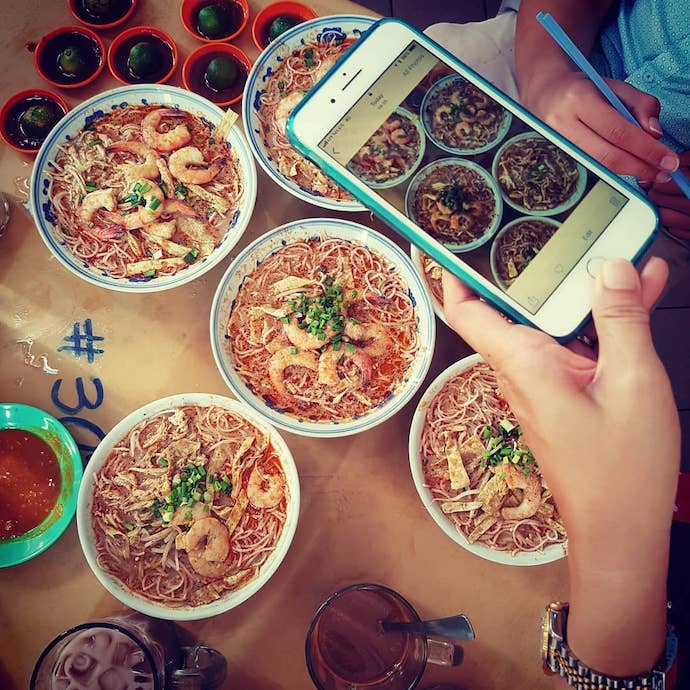
Photo: @davidjiew
Talk to the locals and you’ll discover that each Sarawakian has his or her personal favourite laksa. In Sibu, visitors will most likely be directed to Aloha Corner if they’d like to have one of the best Sarawak laksa for breakfast.
A humble kopitiam in the northwest area of Sibu city centre, Aloha Corner is a beloved food place for the locals, with stalls selling fishball noodles, roti canai, char kway teow, and of course, Sarawak laksa.
A bowl of regular Sarawak laksa here costs RM5 (S$1.50) and it’s topped with a generous portion of shredded chicken and prawns. Opt for the Supreme version, priced at RM10 (S$3), which comes with extra rice vermicelli, toppings and soup.
3. Taste the legendary Sibu kampua mee
Besides Sarawak laksa, Sarawakians are also proud of their kampua mee, a speciality of poached noodles tossed in soy sauce and shallot oil.
Unlike the renowned Sarawak kolo mee, the noodle used in kampua mee is straight. It’s often served simply with a few slices of char siew (barbecued pork), spring onion and chilli sauce.
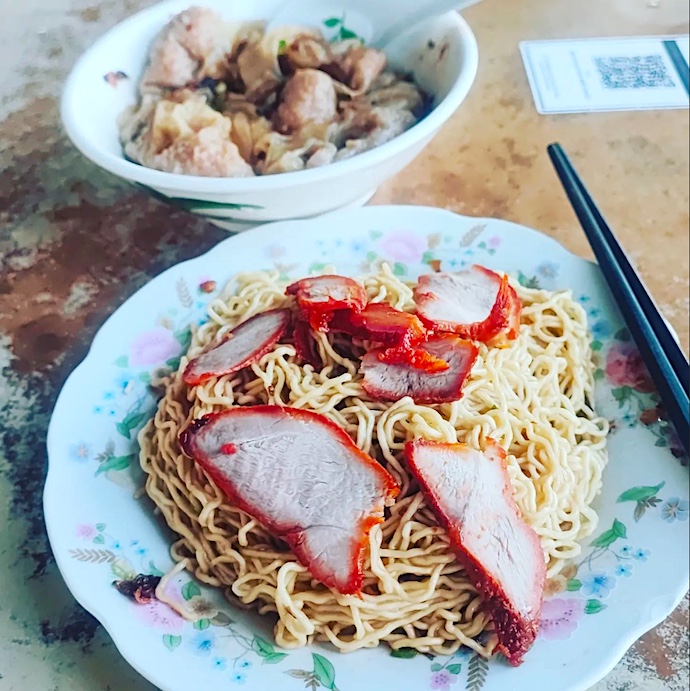
Photo: @p3t3r_n
In Sibu, kampua mee is commonly served together with a bowl of flavourful onion soup or beef soup (beef kampua).
At Soon Hock Cafe & Restaurant, which has been selling this local favourite for the past two decades, most diners pair their kampua mee with a bowl of wanton (dumplings filled with minced pork) served in dark soy sauce.
Don’t be deceived by its insignificant look, the Soon Hock kampua mee is tangy, fragrant and tasty. Due to its popularity, be prepared to queue for your food during peak dining hours.
A bowl of kampua mee costs between RM2.50 and RM4 (S$0.75 – S$1.20) depending on the portion served. A bowl of wanton costs RM4 (S$1.20).
4. Discover Sibu’s history at Sibu Cultural Heritage Museum
Learn more about the rich history and culture of Sibu at the Sibu Cultural Heritage Museum which was set up in 1988 by the Cultural Heritage Committee of Sibu Civic Centre with support provided by various ethnic associations.
The Museum was initially located on the ground floor of the Sibu Civic Centre before moving to its current location – inside the Sibu Heritage Centre – in 2010.
The Museum tells a vivid story of this riverine town from its early days and traces the footsteps of the early settlers of Sibu during the formative years of Malaysia. It also showcases a series of old photographs and antiques of the ethnic groups from the central regions of Sarawak and the local Chinese Fuzhou community.
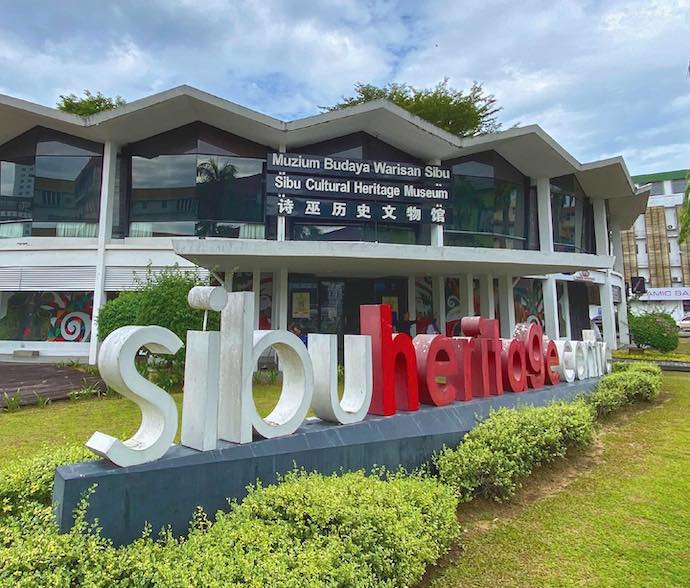
Photo: @foodmsia
Other highlights include the taxidermy of animals native to the region like the orang utan, moon rat and rhinoceros hornbill, along with skulls taken from Iban longhouses.
These items were carefully preserved from a time when headhunting was commonly practised by the Dayak or the indigenous people living in Sarawak. At the moment, the Museum does not charge for admission.
5. Visit Tua Pek Kong Temple and Goddess of Mercy Pagoda
The Eng Ann Tua Pek Kong Temple has a history that traces back as far as 1871. It’s the oldest and most well-preserved Chinese temple in Sibu. Most of the materials used to build the temple, including the Tua Pek Kong statue, were imported directly from China.
Worshipped by ethnic Chinese in Malaysia, Singapore and parts of Indonesia, Lord Tua Pek Kong is a deity of Peranakan folk religion
The Eng Ann Tua Pek Kong Temple was rebuilt from its original wooden structure into a Taoist building with tiled roof and stone floor in 1890.
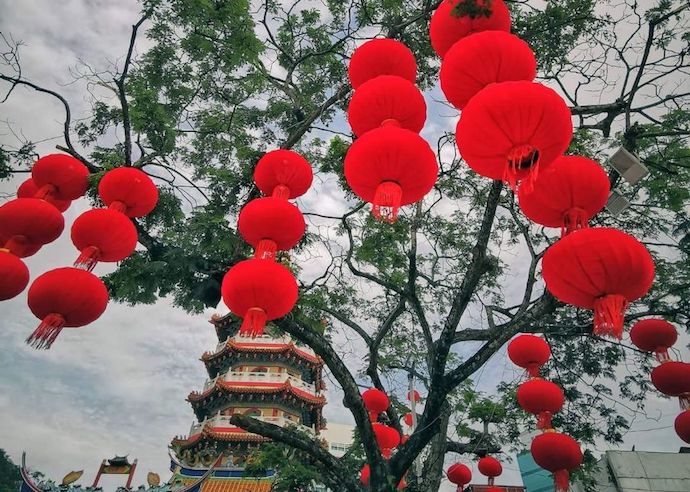
Photo: Sarawak Trade and Tourism Office Singapore
To the locals, the temple is not only sacred, it’s also a place filled with miracles. The temple was left undamaged in a fire that took place in 1928 which blazed a large part of the town. Likewise, the temple remained unharmed in the continuous bombings launched by the Japanese and allied forces during World War II.
You may wish to offer your respect to the deity or take your time to admire the architecture and many stone sculptures found within the Temple.
The adjacent Goddess of Mercy Pagoda was constructed in 1987. The seven-storey high Pagoda is believed to be the most proportioned pagoda outside of China.
Climb up to the top of the Pagoda to enjoy a scenic view of the Rajang River. Be sure to check out the historic photos and paintings displayed on level three to learn more about the temple’s illustrious past.
6. Catch the sunset at Rejang Esplanade
A stone’s throw away from the Tua Pek Kong Temple is the Rejang Esplanade, a picturesque waterfront promenade that stretches along the Rajang River. The Esplanade was built in 1987 from land reclaimed by the river bed.
Today, the Esplanade is a great place for evening strolls, photo-taking and dining at one of the many alfresco restaurants there. It often hosts cultural performances, public events and celebrations.
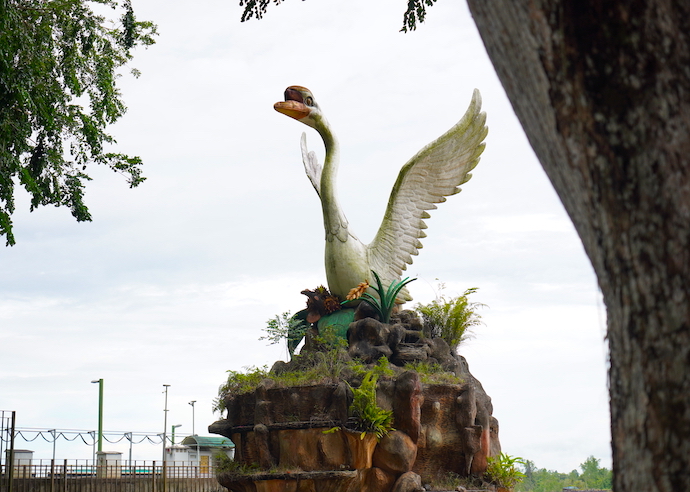
Photo: Sarawak Trade and Tourism Office Singapore
Even so, you’ll be able to catch a glimpse of its past, including the wharf that used to be the earliest trading point in Sibu and “floating markets” or small boats carrying goods to be sold to the locals.
The most iconic of all would be the Swan Statue, erected by the Sibu Municipal Council in the 1990s. According to an old Sibu legend, the locals continued to feed the swans that were living in the region despite famine. In return, the swan showed the locals how to extract edible starch from tropical palms. This edible starch is the sago we know in modern times – like the sago pearls added in various kinds of desserts.
This age-old friendship is how Sibu’s nickname – Swan City – came about. It’s common to see swan statues in various parts of Sibu, with the one by the Esplanade being the most famous.
7. Get a taste of Sibu’s street food and experience nightlife at Sibu Night Market
On some nights, you’ll find more than 100 stalls at the Sibu Night Market gathered at the junction of Jalan Market in the centre of Sibu. Shop for fashion items, footwear, toys, household goods and food, of course.
Start your local street food adventure by savouring some of the most authentic local snacks like Foo Chow siew muai, Sarawak satay, panggang (grilled glutinous rice wrapped in banana leaf) and midin (local fern). Other must-tries include apam balik or what the locals call “half-moon pancake”, which is similar to a folded crepe filled with butter, sugar and crushed peanuts, and kompia, Sibu’s most famous crusty baked pastry.
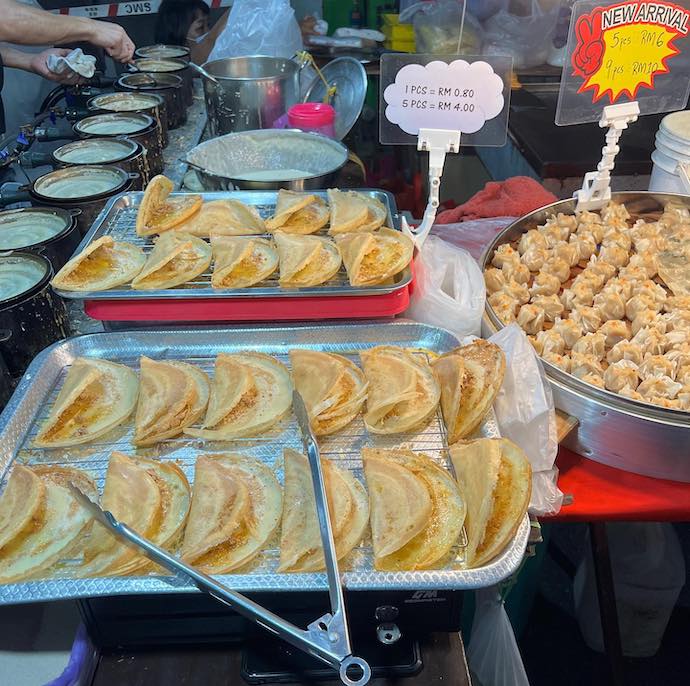
Photo: @boooris_schmidt
Made from wheat flour, water and salt, and topped with sesame seeds, traditional kompia sold in Sibu is baked in a charcoal-filled clay oven which gives it a unique fragrance. Kompia was brought in from Fuzhou, southern China, by the Chinese community who settled in Sibu. It can be eaten as it is or served with a generous stuffing of minced pork.
While you’re at the market, be sure to soak up the sounds and bustling atmosphere of Southeast Asian nightlife.
8. Learn about Chinese settlers at Sungai Merah Heritage Walk
Pasar Sungai Merah is an old bazaar about 10 minutes away from the Sibu city centre on foot. It is named after Sungai Merah (Red River). The Pasar was where the pioneer batch of 72 Chinese immigrants had landed on 12 January 1901. They were led by Wong Nai Siong, a revolutionary leader and educator, who originated from Fuzhou in southern China.
Wong later led a second batch of Chinese immigrants to Sibu on 5 March 1901. He also helped manage the welfare of the immigrants as they settled down in the town. As a result, this area is historically significant to the local Chinese community.
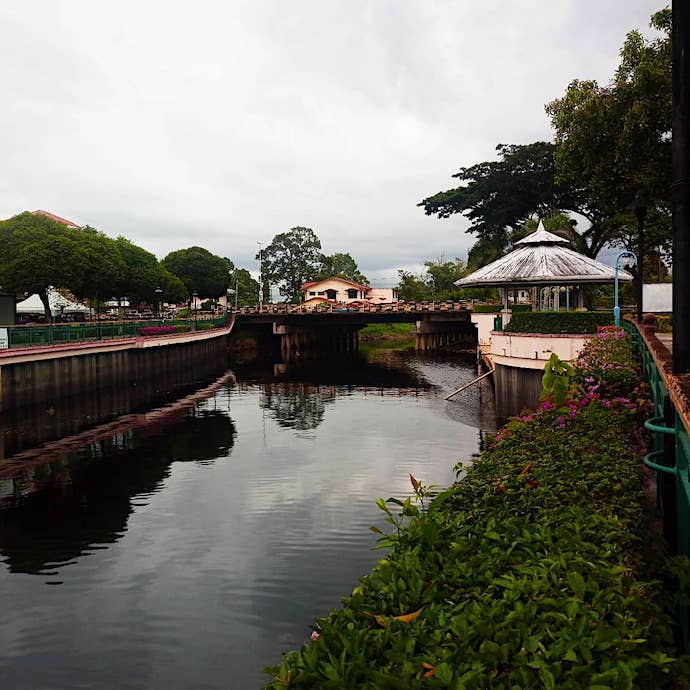
Photo: @goldenbabyfish
Today, the area has been restored into a quaint walking trail by the riverfront and the Pasar is still in operation, providing daily goods and services to those living nearby. After checking out the Pasar, admire the views along the river and visit the Wong Nai Siong memorial garden which commemorates Chinese pioneers in Sibu.
9. Discover the legacy of early Fuzhou community at World Fuzhou Heritage Gallery
If the Sungai Merah Heritage Walk showcases the pioneering batches of the Chinese Fuzhou community who came to settle in Sibu, the World Fuzhou Heritage Gallery is where you can learn more about their lives and legacy.
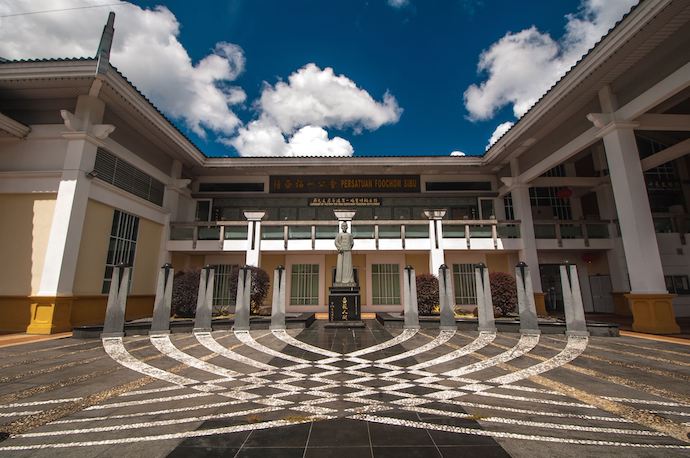
Photo: Greatown Travel
Located at Jalan Salim, the Gallery houses over 650 artifacts that were donated by local Fuzhou families. Many of the artifacts can be traced back to the first group of southern Chinese immigrants who arrived in 1901. The Gallery is believed to be the largest of its kind in the world.
The free Gallery is divided into five sections which showcase the traditions, culture, notable figures, livelihood and the present generation of Fuzhou Chinese in Sibu. Definitely a must-visit for those who are interested in the history of overseas Chinese and their descendants.
10. Shop at Wisma Sanyan, Sibu’s highest building
Standing at 125m tall, Wisma Sanyan is a pinnacle landmark in Sibu. It used to be the tallest building in Sarawak until it was surpassed by Naim the Peak Condominium in 2019.
The headquarters of the Sanyan Group, the largest timber company in Sarawak, Wisma Sanyan houses offices, a shopping mall, a departmental store and government agencies.
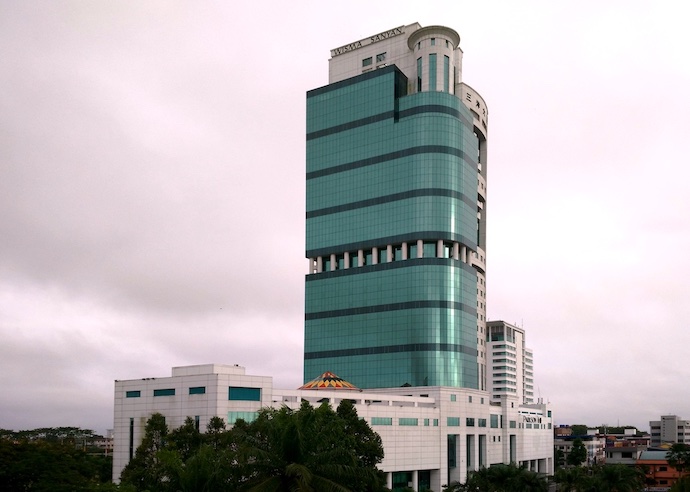
Photo: Sarawak Trade and Tourism Office Singapore
It is also the venue for the annual Sibu BASE jump in September and the Sibu Tower Run in March. At the Sibu BASE jump, participants get to jump from the highest point of the Sanyan building and descend slowly to the ground using a parachute. The Sibu Tower Run requires participants to run up the 627 steps of the staircase of Wisma Sanyan in the shortest possible time.
For others, Wisma Sanyan is a shopping haven. Boasting over 14,000m2 of retail space, the shopping mall occupies five levels and houses a Parkson department store.
11. Get close to nature at Bukit Lima Nature Reserve
An urban park and “green lung” of Sibu, Bukit Lima Nature Reserve opened in 2001 and is popular for its jungle trails that bypass the largest peat swamp forest park in Sarawak, along with its close proximity to nature and wildlife.
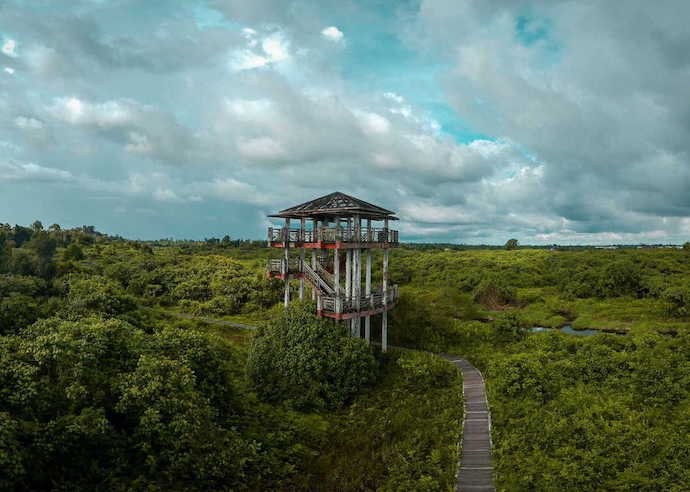
Photo: Sarawak Tourism Board
The entire trekking trail, which is on a well-paved wooden boardwalk, is about 5.7km long. The Nature Reserve is home to close to 40 species of flora and fauna, and eight species of mammals. Look out for long-tailed macaques, squirrels, tropical birds and pangolins.
Public transport is available between Sibu town centre to the Nature Reserve. Take bus number 10 operated by the Lanang Transport Company at the bus terminal to the entrance of the Nature Reserve. A one-way ticket costs RM5 (S$1.50) and the journey takes about 20 minutes.
This article has been edited and adapted from Now Boarding by Changi Airport’s “A weekend getaway in Sibu, Malaysia – the newest off-the-beaten destination to explore from Singapore”

